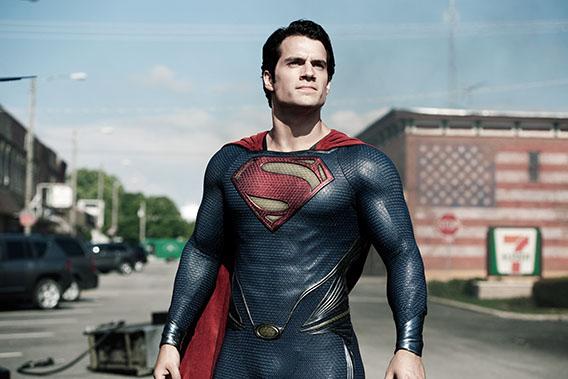The Best Thing About Man of Steel? The Score.

Photo by Clay Enos/Warner Bros.
One of the less appreciated consequences of the current vogue for movie-franchise reboots is that contemporary film composers are being asked to add their own music to images that are often already strongly associated with a classic theme. For many moviegoers, those iconic tunes are indistinguishable from the familiar stories and characters.
When scoring in an elder’s imposing shadow, some composers show due respect by riffing on or subtly quoting the old themes within the context of their own new material—as Michael Giacchino did to great effect in the recent Star Trek release, for instance. Others recognize the gravity of the old themes and choose to resist it anyway—a risky move, but one that has the potential to reinvigorate an aging story for a new audience.
This is what Hans Zimmer has done with Superman in Man of Steel. John Williams’ rousing fanfare, march, and love theme for the 1978 Christopher Reeve movie sound like a perfectly balanced distillation of the old Superman, equal parts patriotism, nobility, and self-assurance, lightened with a splash of romance and a hint of kitschy humor. As one of the great movie themes of all time, it is in many ways the motivating spirit of the franchise. But for Zimmer, the Williams material felt more like a stubborn ghost.
“Look, that was daunting,” Zimmer revealed in an interview with CNN. “Seriously. He’s the greatest film composer out there, without a doubt, and it happens to be one of his iconic pieces of music, so I spent three months just procrastinating and not even getting a start on the thing, because I was so intimidated: ‘Oh my God, I’m following in John Williams’ footsteps.’ ”
But when he finally got to it, Zimmer found that director Zach Snyder’s Man of Steel was a different sort of alien from the one Williams had scored so many decades ago. “I kept thinking of the story as, what if you are extraordinary, and your entire ambition is to join humanity? To become human?” he told CNN. “What does it mean to become human? What does it mean to be an outsider who really wants to join the human race?”
Zimmer’s focus on Clark Kent’s estrangement gave rise to the most lovely part of his roughly three-mood score, what I’ll call the “hope theme.” Drawing on his gift for succinct melodic lyricism—also displayed in his films scores for Driving Miss Daisy and The Holiday—Zimmer employs an echoey, slightly detuned piano to state a simple melody that manages to be both wistfully bittersweet and deeply comforting.* This is Ma Kent music. Then, Man of Steel being an action movie, there is the classic and always enjoyable Zimmerian penchant for darkly rushing minor strings and the cavernous brass hits was all know and love from Inception. Added to this bluster is the shiver-inducing deployment of a large drum ensemble (featuring notables like Pharrell Williams) that already has drummers everywhere joining in with the beat. The final element is probably the closest thing to a nod to John Williams, at least in sprit: a rising motif that reaches past evil and toward the sun in its noble, brass-rich warmth.
Considered together, the Man of Steel score feels like a culmination of the techniques that Zimmer has been exploring in other scores for the past decade—and in some cases longer. His balance and blending of electronic sounds with live orchestra is superb, as is his restrained-but-evocative use of choirs in a score that could have gone very Carmina Burana in the wrong hands. My favorite part of Man of Steel was the full-throttle use of Zimmer’s “dramatic minimalism,” his tendency to build tension through rippling layers of sound that emerge from some kind of sonic primordial soup, gradually increase in volume and mass, and then dissipate back into the void. For a story about an outsider who would like to blend in, but is called upon to stand out dramatically from time to time, it’s music that could hardly be more appropriate. And it might be Zimmer’s best score to date.
*Correction, June 13, 2013: This post originally misstated the title of the film Driving Miss Daisy.

